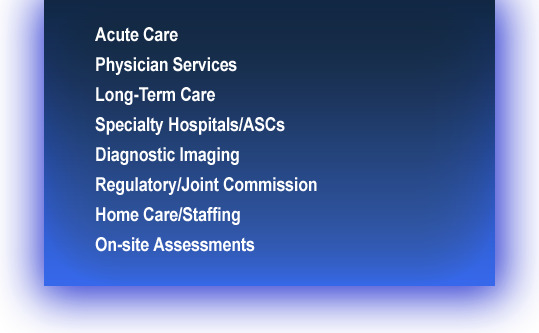Healthcare Innovation
Healthcare Innovation can be defined as the introduction of a new concept, idea, service, process, or product aimed at improving treatment, diagnosis, education, outreach, prevention and research, with the long term goals of improving quality, safety, outcomes, efficiency and costs.
Clinical Risk Solutions, Inc.
Partnering to Create a Safety-Centered Model of Excellence and a Culture of Risk Innovation
Clinical Risk Solutions, Inc. is a clinical risk management company providing
consulting services to health care organizations across the continuum of
care.
Our clinical risk management consultant team consists of highly-skilled physicians, clinicians, attorneys, and and health care administrators.
We offer extensive knowledge and hands-on expertise of clinical risk management, professional liability claims, regulatory and accreditation compliance, organizational culture, insurance brokerage, and contract services, in multiple healthcare settings.
Patient safety is defined as the prevention of harm to patients, where harm can occur through errors of commission and omission. Safety and quality cannot be separated. Health care organizations are finding that many adverse events that were previously considered unavoidable actually are avoidable.
We are eager to partner with you to assess your risk and identify innovative strategic programs to improve to improve quality and safety. Our ultimate goal is to create an integrated culture of clinical safety excellence, reduce professional liability claims, and achieve zero avoidable medical errors.
Safety Culture
Human Factors
Human factors (HF) relates to the interaction of humans and technical systems.
Executives and medical staff leaders play a critical leadership role in ensuring safety and in promoting awareness of human factors.
Two primary components that connect human factors and medical errors that require the engagement of the senior leadership are 1) developing a positive safety culture and 2) embedding human factors training.
When healthcare organizations achieve a positive safety culture, they create organizations that are open, just, and informed, in which reporting and learning from errors is part of the day-to-day operations.

